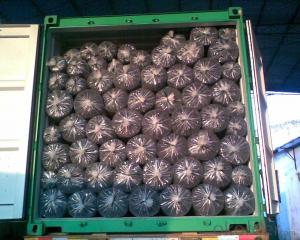Fishing has been a part of human culture and survival for thousands of years. From the ancient Egyptians to the modern-day fishermen, the art of catching fish has evolved in many ways. One of the most significant changes in fishing technology is the introduction of plastic fishing nets. These nets have revolutionized the fishing industry, making it more efficient and sustainable. In this article, we will explore the world of plastic fishing nets, their benefits, and how they have impacted the fishing community.
The Evolution of Fishing Gear
Fishing gear has come a long way since the days of simple hooks and lines. The introduction of nets marked a significant advancement in fishing techniques. However, traditional nets made from natural fibers had their limitations. They were susceptible to wear and tear, and their effectiveness was often compromised by environmental factors. The invention of plastic fishing nets addressed these issues, offering a more durable and reliable alternative.
The Benefits of Plastic Fishing Nets
Plastic fishing nets have several advantages over traditional nets. They are lightweight, easy to handle, and resistant to corrosion from saltwater. This makes them ideal for marine environments. Moreover, plastic nets are more cost-effective, as they require less maintenance and have a longer lifespan.
Durability and Longevity
One of the most significant benefits of plastic fishing nets is their durability. They can withstand the harsh conditions of the sea for extended periods without losing their effectiveness. This means that fishermen can rely on these nets for a longer time, reducing the need for frequent replacements.
Cost-Effectiveness
The cost-effectiveness of plastic fishing nets is another major advantage. Since they are less prone to damage and require less maintenance, fishermen can save on operational costs. This is particularly important for small-scale fishermen who may not have the resources to invest in expensive gear.
Environmental Impact
While plastic fishing nets offer numerous benefits, it is essential to consider their environmental impact. Plastic pollution is a growing concern worldwide, and the fishing industry must take responsibility for its role in this issue. However, advancements in recycling and biodegradable materials are helping to mitigate the negative effects of plastic waste.
The Fishing Community’s Response
The fishing community has embraced the use of plastic fishing nets, recognizing their benefits and potential for sustainable fishing practices. Many fishermen have switched to plastic nets, leading to improved catch rates and reduced operational costs.
Improved Catch Rates
The use of plastic fishing nets has led to increased catch rates for fishermen. The nets’ durability and design allow for more efficient fishing, ensuring that fish do not escape as easily as they might with traditional nets.
Sustainable Fishing Practices
Plastic fishing nets can contribute to sustainable fishing practices by reducing the need for frequent gear replacements. This not only saves money but also reduces the environmental impact of producing and disposing of fishing gear.
The Future of Plastic Fishing Nets
As the fishing industry continues to evolve, the use of plastic fishing nets is likely to become even more widespread. Innovations in materials and design will further enhance their effectiveness and sustainability.
Innovations in Materials
Researchers are exploring new materials that can improve the performance of plastic fishing nets. These innovations may include stronger, more durable plastics or even biodegradable options that reduce the environmental impact.
Design Improvements
In addition to material advancements, improvements in net design will also play a crucial role in the future of plastic fishing nets. More efficient designs can lead to better catch rates and reduced bycatch, ensuring that the fishing industry remains sustainable and environmentally responsible.
Conclusion
Plastic fishing nets have transformed the fishing industry, offering a more efficient, durable, and cost-effective solution to traditional fishing gear. While there are concerns about their environmental impact, ongoing innovations and responsible practices can help mitigate these issues. As we look to the future, the continued development and adoption of plastic fishing nets will play a vital role in shaping the fishing industry for the better.

